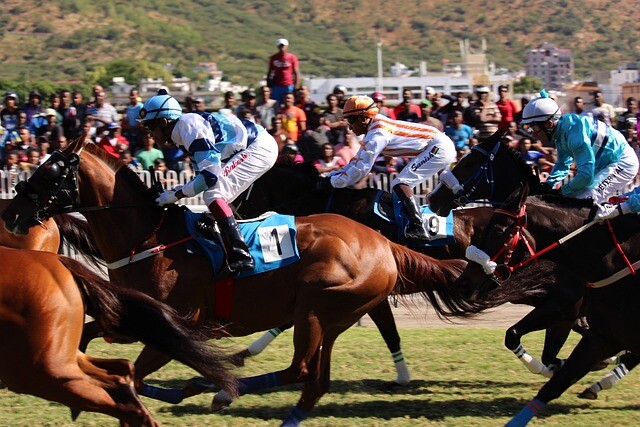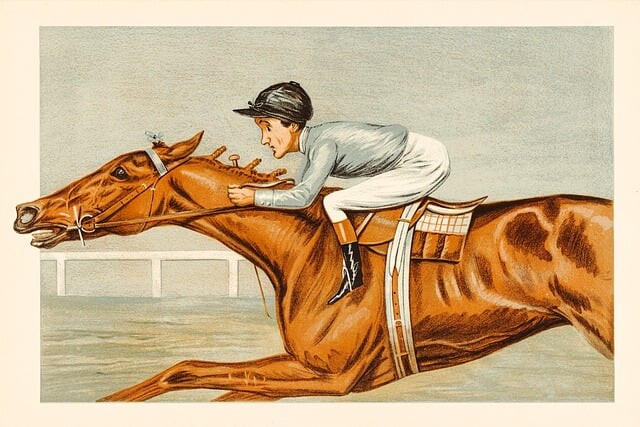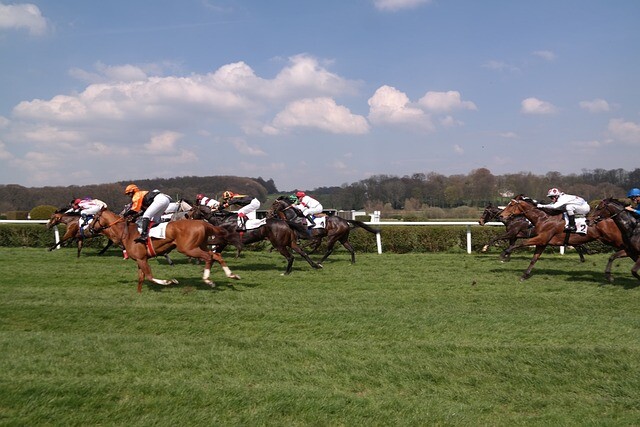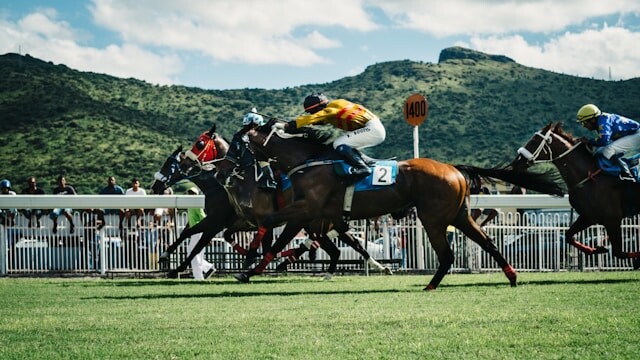 Yes, you do. Amateur jockeys must hold, at least, a Category ‘A’ Amateur Licence issued by the British Horseracing Authority (BHA). Before applying for such a licence, applicants must successfully complete a two-day assessment course run by the British Racing School in Newmarket or the National Horseracing College in Doncaster. They must then submit an application to the BHA
Yes, you do. Amateur jockeys must hold, at least, a Category ‘A’ Amateur Licence issued by the British Horseracing Authority (BHA). Before applying for such a licence, applicants must successfully complete a two-day assessment course run by the British Racing School in Newmarket or the National Horseracing College in Doncaster. They must then submit an application to the BHA
and, if the application is approved, pay an appropriate fee.
The Category ‘A’ Amateur Licence entitles the holder to ride only in Flat races, steeplechases and hurdle races restricted to amateur jockeys. It is worth noting that, although many such races require membership of the Amateur Jockeys’ Association (AJA), the licence does not include the automatic right to join the AJA.
Once an amateur jockey has gained some experience, and subject to a minimum number of completed rides under the Rules of Racing, or in point-to-point steeplchases, as stipulated by the BHA, he or she may wish to apply for a Category ‘B’ Amateur Licence. Eligible applicants are invited by the BHA to attend a five-day assessment course at one of the aforementioned establishments and, on successful completion, further qualify to ride in all National Hunt Flat races and steeplechases and hurdle races not confined to fully-fledged professional jockeys.
When it comes to turning professional, the BHA Licensing Committee does not typically consider applications from anyone who has not previously held a licence as an amateur, apprentice or conditional jockey. Anyone who has may apply for a Professional Jockey Licence, provided they have ridden 75 winners under National Hunt Rules, or 95 winners on the Flat, and/or are at least 26 years of age.
 Without wishing to rain on anyone’s parade, perhaps the first points to make are that trainee jockeys need to be between 16 and 25 years of age, physically fit and be able to ride between 8st 2lb and 10st 2lb, on the Flat, or between 10st 2lb and 12st, over jumps. Those caveats aside, the first step to becoming a jockey is to complete a Level 1 Diploma in Racehorse Care at the British Racing School (BRS) in Newmarket or the National Horseracing College (NHC) in Doncaster. You will need to demonstrate your fitness beforehand, but no previous riding experience is required. It is worth noting, though, that courses are heavily over-subscribed and, according to the BRS, less than 5% of attendees go on to become jockeys.
Without wishing to rain on anyone’s parade, perhaps the first points to make are that trainee jockeys need to be between 16 and 25 years of age, physically fit and be able to ride between 8st 2lb and 10st 2lb, on the Flat, or between 10st 2lb and 12st, over jumps. Those caveats aside, the first step to becoming a jockey is to complete a Level 1 Diploma in Racehorse Care at the British Racing School (BRS) in Newmarket or the National Horseracing College (NHC) in Doncaster. You will need to demonstrate your fitness beforehand, but no previous riding experience is required. It is worth noting, though, that courses are heavily over-subscribed and, according to the BRS, less than 5% of attendees go on to become jockeys. Run over three miles at Kempton Park, the King George VI Chase was inaugurated in February 1937 and named in honour of the new monarch, King George VI, who ascended the throne following the abdication of his brother, Edward VIII, the previous December. However, the King George VI Chase has been the Boxing Day highlight at the Sunbury-on-Thames course since 1947. Its roll of honour includes the likes of Arkle, Kauto Star, Mill House, Burrough Hill Lad and Long Run, all of whom feature in the top-ten highest-rated steeplechasers of the Timeform era.
Run over three miles at Kempton Park, the King George VI Chase was inaugurated in February 1937 and named in honour of the new monarch, King George VI, who ascended the throne following the abdication of his brother, Edward VIII, the previous December. However, the King George VI Chase has been the Boxing Day highlight at the Sunbury-on-Thames course since 1947. Its roll of honour includes the likes of Arkle, Kauto Star, Mill House, Burrough Hill Lad and Long Run, all of whom feature in the top-ten highest-rated steeplechasers of the Timeform era. The 2024 horse racing calendar is about to ramp up, with some stellar meetings throughout the entirety of the festive period providing plenty to get excited about. On boxing day, the King George VI Chase will take centre stage at Kempton, a race that Il Est Francais has been made a 3/1 frontrunner to win. The following day, it’s the Welsh Grand National at Chepstow, another marquee event on the festive sporting calendar.
The 2024 horse racing calendar is about to ramp up, with some stellar meetings throughout the entirety of the festive period providing plenty to get excited about. On boxing day, the King George VI Chase will take centre stage at Kempton, a race that Il Est Francais has been made a 3/1 frontrunner to win. The following day, it’s the Welsh Grand National at Chepstow, another marquee event on the festive sporting calendar.